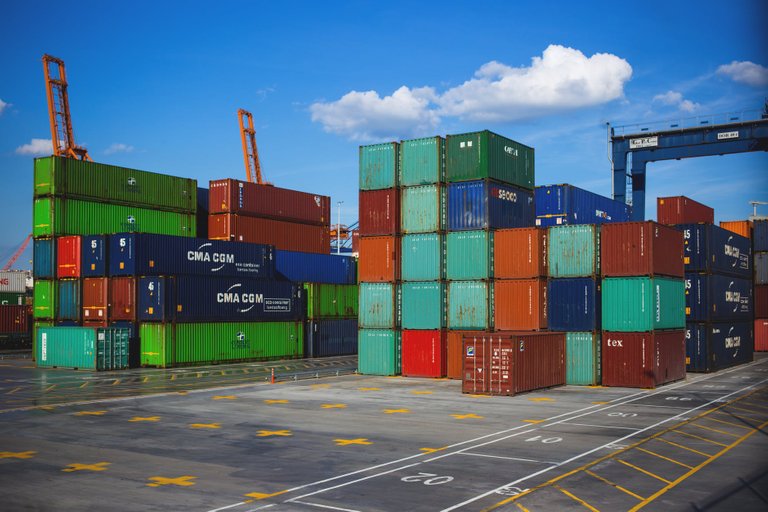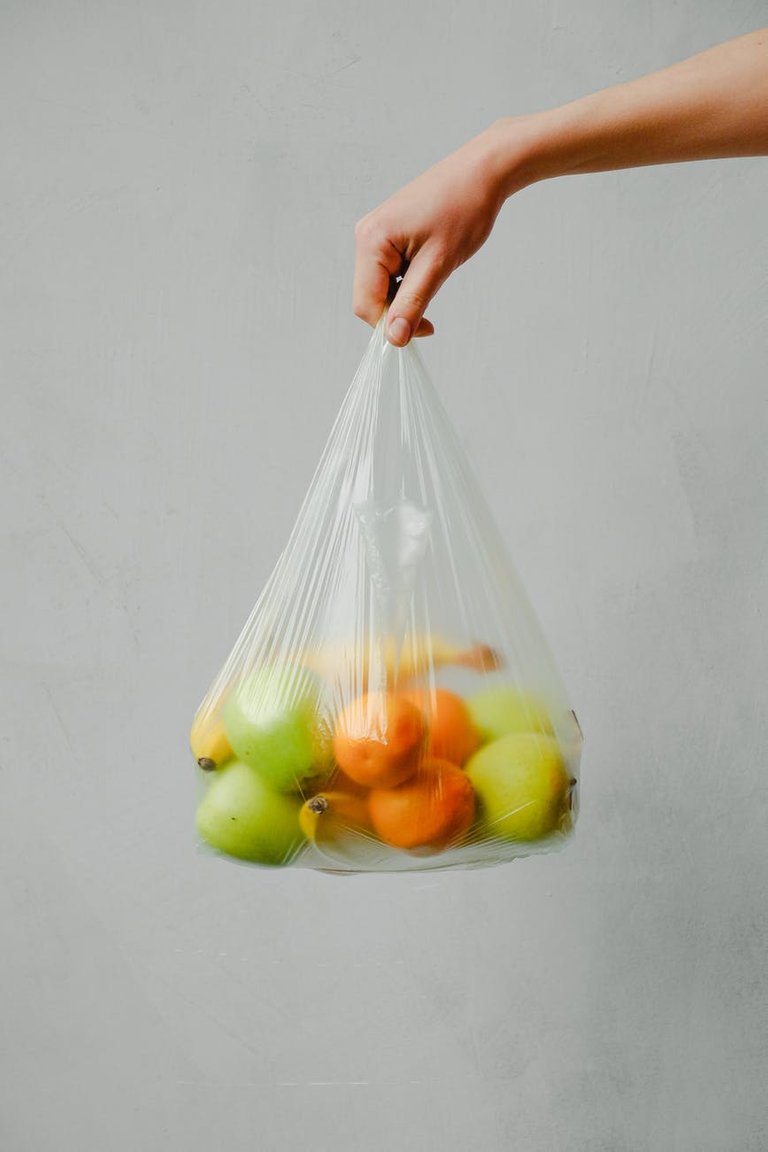The question of whether an economic embargo makes sense is a controversial one. Most of the time it does not affect those it is meant to harm. In poor countries, it hits the population particularly hard, sometimes to the point of starvation, see North Korea. In countries that are not third world, it is usually passed on to the population as well and results in a reduced quality of life.__
You could probably cite any economic embargo as an example. However, there is currently a case that illustrates particularly well how trade flows change like an octopus when the usual trade in goods collapses. In the case of Russia, we can see where the new paths go, become long and lead to long-term environmental pollution.
Since Russia seized Crimea in violation of international law, the EU has imposed embargoes on Russia. Of course, this has not gone unanswered. So the Kremlin has targeted a long-cherished plan to increase food production in Russia. A counter-embargo preventing the import of EU food should make this goal achievable.
Clear targets for food production growth had been set by the Kremlin for 2020. Time to settle the score.
It is now 7 years since Russia began the new path to more self-sufficiency. The figures are rather sobering.
Milk imports were supposed to fall by 30% and have fallen by 20%. Vegetable imports were supposed to fall by 70% and have fallen by 27%. The reasons why these targets were not met were widely discussed in Russia shortly after the embargoes were introduced. The routes of the goods are simply changing. No deliveries directly from the EU to Russia change into EU deliveries all over the world, re-packaging and re-declaration and import by Russia.
Belarus has come particularly strongly into the focus of Russian officials. There, the new situation has led to miraculous apple blossoms among other blossoms. Belarus has since been able to increase its own apple harvest fivefold. Since then, relations between the actually closely allied states have been increasingly put to the test. From February 2021 onwards, Russia has decided to intensify and tighten border controls between the two countries.
Milk imports from Belarus have risen by 36 percentage points to now account for 79% of all Russia's dairy imports. In addition, meat imports from Belarus increased from 12% to almost 33%.
40% of fish imports were handled before the relationship crisis with Norway. Now the supplies come from the Faeroe Islands and Chile. Chile has since tripled its fish imports from Norway.
Another important supplier of fruit is Ecuador, which has increased its fruit imports from the EU sevenfold.
 Source freestocks.org / Pexels
Source freestocks.org / Pexels
The situation is no different in the East. China has tripled its vegetable imports from the EU in the period mentioned and is pushing its exports to Russia to the extreme.
Other countries that are known to be doing similar things are Serbia, Moldova and Azerbaijan.
However, there are also 3 areas in which the desired goal has been achieved. Russia has actually achieved the targeted figures for poultry, pork and tomato imports.
It can also be seen, however, that Russian companies that benefit, do not influence the negative price dynamics in any area.
The Kremlin currently confirms the success of the substitution programme.
Independent research in Russia has shown that since the embargoes and counter-embargoes, every Russian has to invest $70 more per year in food. With an average Russian monthly wage of around $200, this is a barbaric sum.
It can be said without any embellishment or dramatisation that the disadvantages of the supply changes clearly outweigh the advantages of the substitution programme.
The basic idea that each country supplies itself and as regionally as possible is certainly correct. The way to achieve this through embargoes, on the other hand, is not useful; it leads to unbelievably long routes for the goods, false declarations and even more packaging waste.

Cómo un embargo económico lleva a la destrucción del medio ambiente!
La cuestión de si un embargo económico tiene sentido es controvertida. La mayoría de las veces no afecta a los que se supone que debe dañar. En los países pobres golpea a la población con especial dureza, a veces hasta tal punto que se mueren de hambre, véase Corea del Norte. En los países que no son del tercer mundo, suele transmitirse a la población y da lugar a una reducción de la calidad de vida.
Como ejemplo, podría citar cualquier embargo económico. Sin embargo, en la actualidad hay un caso que ilustra particularmente bien cómo los flujos comerciales cambian como el pulpo, el comercio habitual de mercancías se derrumba. En el caso de Rusia, podemos ver dónde van los nuevos caminos, se hacen largos y conducen a la contaminación ambiental a largo plazo.
Desde que Rusia se incautó de Crimea en violación del derecho internacional, la UE ha impuesto embargos a Rusia. Por supuesto, esto no ha quedado sin respuesta. Así que el Kremlin ha puesto en marcha un plan a largo plazo para aumentar la producción de alimentos en Rusia. Un contra-embargo que impida la importación de alimentos de la UE debería hacer que este objetivo sea alcanzable.
El Kremlin había establecido objetivos claros para el crecimiento de la producción de alimentos para 2020. Es hora de ajustar cuentas.
Hace ahora 7 años que Rusia comenzó el nuevo camino hacia una mayor autosuficiencia. Las cifras son bastante aleccionadoras.
Se suponía que las importaciones de productos lácteos habían caído un 30% hasta hoy y han caído un 20%. Se suponía que las importaciones de vegetales iban a caer un 70% y han caído un 27%. Las razones por las que estos objetivos no se cumplen han sido ampliamente discutidas incluso en Rusia poco después de la introducción de los embargos. Las rutas de las mercancías simplemente están cambiando. Ninguna entrega directa de la UE a Rusia se transforma en entregas de la UE en todo el mundo, el envasado y la re-declaración de origen y la importación a través de Rusia.
Belarús ha pasado a ocupar un lugar especialmente destacado entre los funcionarios rusos. Allí, la nueva situación ha dado lugar a caprichosas flores de manzano entre otras flores. Desde entonces, Belarús ha podido quintuplicar su propia cosecha de manzanas. Las relaciones de los estados aliados realmente cercanos han sido puestas a prueba cada vez más. A partir de febrero de 2021, se decidió aumentar y concentrar los controles fronterizos entre los dos estados por parte de Rusia.
Las importaciones de productos lácteos de Bielorrusia han aumentado en 36 puntos porcentuales y ahora representan el 79% de todas las importaciones de productos lácteos de Rusia. Además, las importaciones de carne aumentaron del 12% a casi el 33% de Belarús.
El 40% de las importaciones de pescado se manejaban antes de la crisis de relaciones con Noruega. Ahora los suministros vienen de las Islas Faroe y Chile. Este último ha triplicado desde entonces sus importaciones de pescado de Noruega.
Otro importante proveedor de fruta es el Ecuador, que ha multiplicado por siete sus importaciones de fruta de la UE.
 Fuente freestocks.org / Pexels
Fuente freestocks.org / Pexels
La situación no es diferente en el Este. China ha triplicado sus importaciones de vegetales de la UE en el período mencionado y está presionando mucho sus exportaciones a Rusia.
Otros estados de los que se sabe algo similar son Serbia, Moldova y Azerbaiyán.
Sin embargo, también hay 3 áreas en las que se ha logrado el objetivo deseado. Rusia ha alcanzado realmente las cifras deseadas de importaciones de aves de corral, cerdo y tomates.
Sin embargo, también se puede observar que las empresas rusas que se benefician no influyen en la dinámica negativa de los precios en ninguna esfera.
El Kremlin confirma actualmente el éxito del programa de sustitución.
Investigaciones independientes en Rusia han demostrado que desde los embargos y contra-embargos, cada ruso tiene que invertir 70 dólares más al año en alimentos. Con un salario mensual ruso promedio de alrededor de 200 dólares, es una suma bárbara.
Se puede decir sin ningún adorno ni dramatización que las desventajas de los cambios de suministro superan claramente las ventajas del programa de sustitución.
La idea básica de que cada país se abastece a sí mismo y de la forma más regional posible es ciertamente correcta. La forma de lograrlo a través de los embargos, por otra parte, no tiene sentido; conduce a rutas increíblemente largas para las mercancías, declaraciones falsas y aún más residuos de envases.

Your current Rank (18) in the battle Arena of Holybread has granted you an Upvote of 51%
Congratulations @sifondeseltz! You have completed the following achievement on the Hive blockchain and have been rewarded with new badge(s) :
You can view your badges on your board and compare yourself to others in the Ranking
If you no longer want to receive notifications, reply to this comment with the word
STOPDo not miss the last post from @hivebuzz:
!BEER
!ENGAGE 20
ENGAGEtokens.View or trade
BEER.Hey @sifondeseltz, here is a little bit of
BEERfrom @siphon for you. Enjoy it!Learn how to earn FREE BEER each day by staking your
BEER.